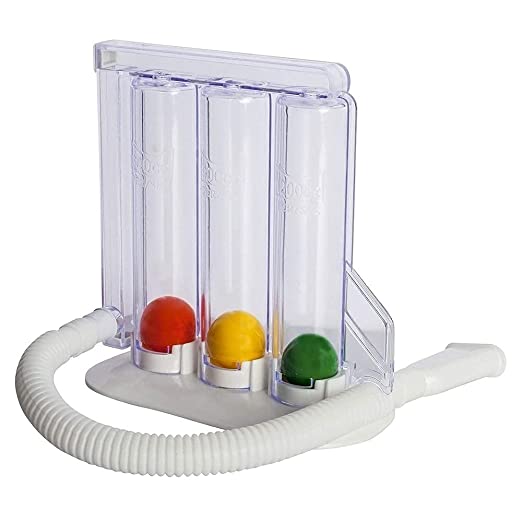Subsequent days following Surgery
Continue your breathing and coughing exercises using the incentive spirometer.

You will be encouraged to eat and drink as long as you don’t feel sick. High energy fortisip/fortijuice drinks are offered and you should try to drink two/three of these each day. Your drip will be taken down as soon as you are drinking well. This is often the day after your operation. Your urinary catheter will be removed as soon as you are mobilising. This may be the day after your operation or when appropriate. We will need to monitor the amount of urine passed for the first two times following removal of your catheter, so you will be given a cardboard container to pass urine into. This is to ensure you are passing urine satisfactorily following the removal of the catheter. Your epidural or patient controlled analgesia (PCA) will stay for approximately 48 hours.
When this is removed you will change to oral analgesia. This is usually a long acting opiate based pain killer that is given twice a day. Additional analgesia can be requested at any time. Please do not wait for the drug rounds. You will have regular blood tests to ensure you are recovering well. You will also be seen by the surgical team daily. Your wound will be checked as needed. Often this is on alternative days. Appropriate dressings will be used. On the day of your surgery, if you feel well enough, we will assist you to sit on the edge of the bed to take deep breaths and if possible to stand and walk on the spot. Each day after your surgery it is advised that you sit out in your chair both morning and afternoon.
On the first day after your operation you should aim for six hours in the chair. Each subsequent day you should continue to aim for at least six hours or more. You should aiming to walk the day after the operation. The nurses are there to help you.
Benefits of early mobilisation include:
- reducing the risk of deep vein thrombosis or pulmonary embolism
- improve wound healing and reduce the risk of developing a chest infection
- bowel healing
- motility
When sitting in the chair it is helpful to march your legs on the spot, move your ankles up and down and bend and straighten your knees. As each day passes you should gradually increase your exercise until you are back to your normal level of activity. The nurses will help you to build up your walking; you will be encouraged to walk along the corridors for about 60 metres four to six times a day. Try to wear your day clothes following surgery as it can help you to feel positive about your recovery. It is important that you tell us when you start passing flatus as this is a sign your bowels are recovering. We also need to know when you have your bowels open. If you have a stoma you will be supported by both the stoma care team and the nurses until you feel confident to manage by yourself.
